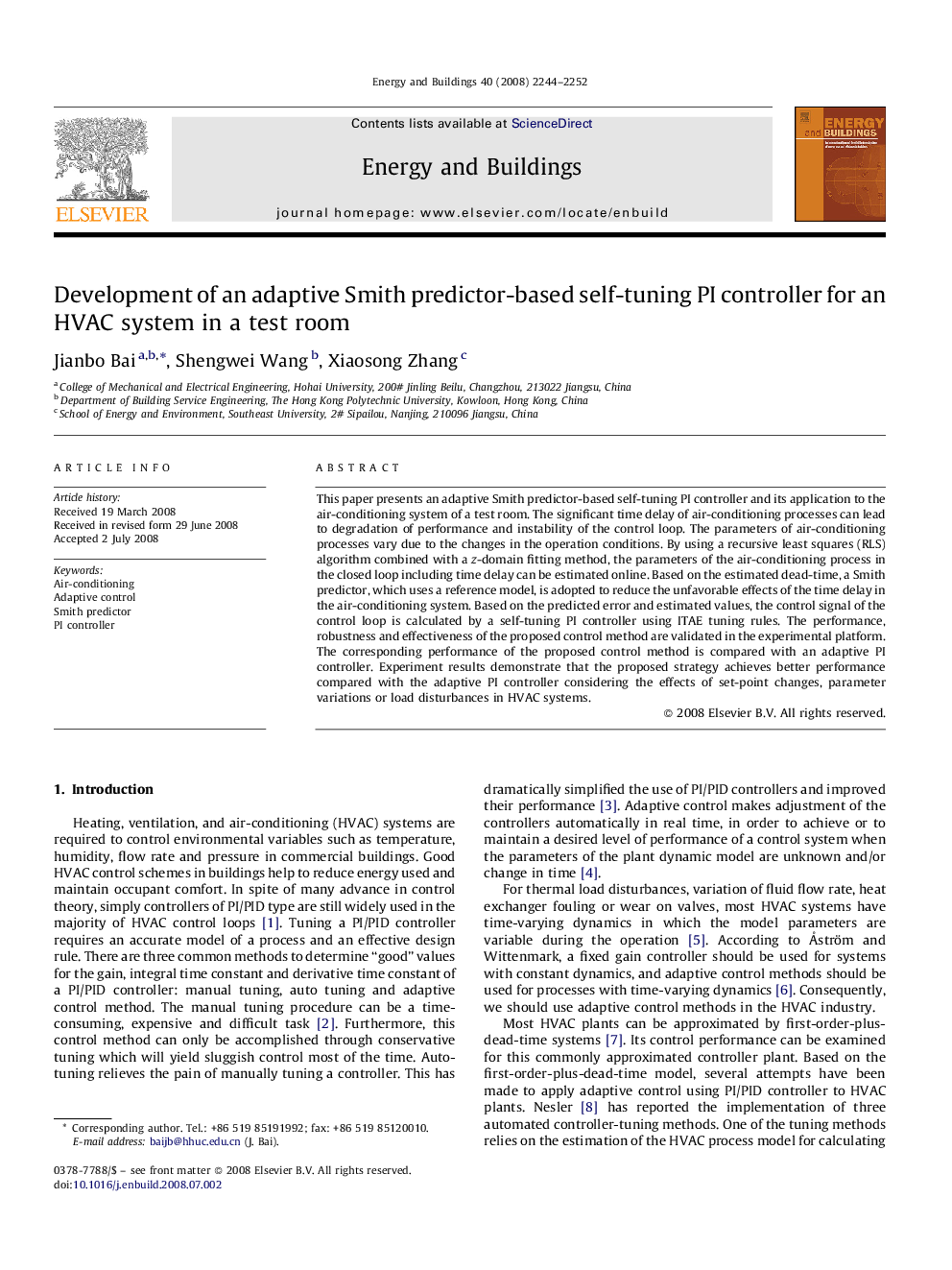| Article ID | Journal | Published Year | Pages | File Type |
|---|---|---|---|---|
| 264955 | Energy and Buildings | 2008 | 9 Pages |
This paper presents an adaptive Smith predictor-based self-tuning PI controller and its application to the air-conditioning system of a test room. The significant time delay of air-conditioning processes can lead to degradation of performance and instability of the control loop. The parameters of air-conditioning processes vary due to the changes in the operation conditions. By using a recursive least squares (RLS) algorithm combined with a z-domain fitting method, the parameters of the air-conditioning process in the closed loop including time delay can be estimated online. Based on the estimated dead-time, a Smith predictor, which uses a reference model, is adopted to reduce the unfavorable effects of the time delay in the air-conditioning system. Based on the predicted error and estimated values, the control signal of the control loop is calculated by a self-tuning PI controller using ITAE tuning rules. The performance, robustness and effectiveness of the proposed control method are validated in the experimental platform. The corresponding performance of the proposed control method is compared with an adaptive PI controller. Experiment results demonstrate that the proposed strategy achieves better performance compared with the adaptive PI controller considering the effects of set-point changes, parameter variations or load disturbances in HVAC systems.
